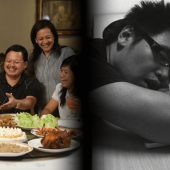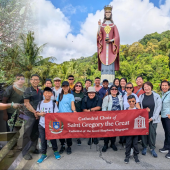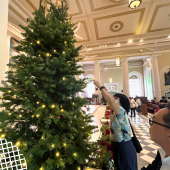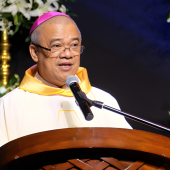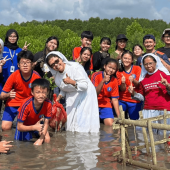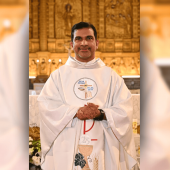Cardinal Parolin to address at International Conference on Cohesive Societies in Singapore on Sept 6
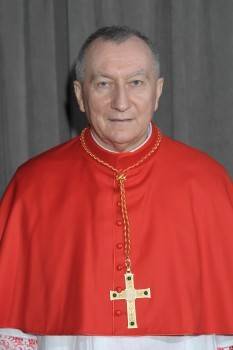
Singapore is hosting the International Conference on Cohesive Societies (ICCS 2022), which will be held from September 6 to 8 at the Raffles City Convention Centre.
The three-day program will feature speeches by renowned speakers from around the world, panel discussions, and dialogues on the themes of faith, identity, and cohesion.
On the first day, September 6, Cardinal Pietro Parolin, Secretary of State, Vatican, is scheduled to give a "special address," according to organizers.
Particularly expert in matters concerning the Middle East and more generally in those regarding the geo-political situation of the Asian continent, Parolin has worked specifically to build up and reinforce relations between the Holy See and Vietnam.
He also contributed to reopening dialogue between Israelis and Palestinians, convinced of the need for a shared effort to "create the conditions for a true and just peace" in the Middle East.
Singapore President Halimah Yacob will open the conference.
The theme of the conference is "Confident identities, connected communities."
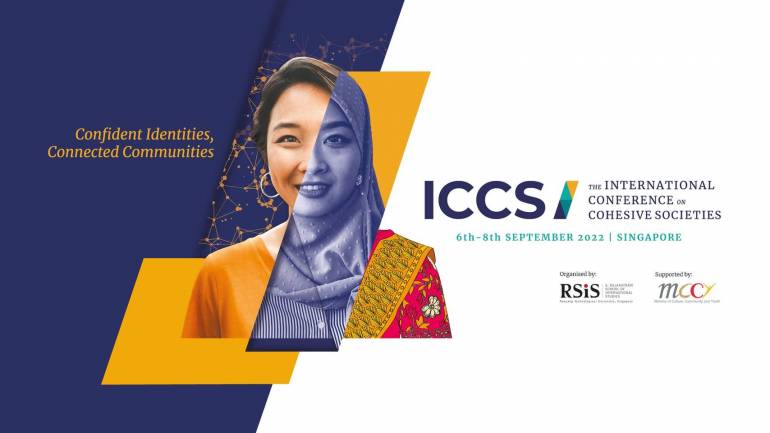
Setting the stage for ICCS 2022 plenaries and breakouts, the Special Presentation will address how differences in culture, beliefs, and value systems, along with the many identities we have as individuals and groups, impact social cohesion.
There will be three plenary sessions highlighting perspectives from Southeast Asia and globally that will be aired in the discussion.
The first plenary will be on "How Faith Can Bridge Divides." This plenary seeks to critically examine the reasons for the rise and endurance of social polarisation due to ideological or religious beliefs.
With a stronger understanding of these divides and the reasons behind them, the conference hopes that some of the lessons gleaned can be applied to foster inter-religious peace and harmony in plural societies both across the region and well beyond. Specific lessons from faith traditions will be shared.
The second plenary will be on "How Diversity Can Be Harnessed for the Common Good." This plenary will seek to address the tools and concepts to understand a world marked by "super-diversity," that is, the existence of highly complex and heterogeneous societies.
It will raise questions about how to talk about identities with people of different and overlapping identities, as well as how to appreciate the complex but important role the intersectionality of identities plays in forging social cohesion. It will discuss the way that our belonging and identity overlap across issues such as gender, class, race, nationality, religion, and worldview, both as individuals and as groups.
Only by understanding complex interconnections and interdependencies between individuals and social systems can we increase our social capital and create opportunities for individuals in society to form deep bonds across differences for the common good.
The third plenary is on "How Technology Can Be Leveraged to Foster Mutual Trust." This plenary will deal with how digital platforms can create echo chambers and be used for divisive ends and find ways to promote social cohesion.
People's identities are part of this, including their religious identities, but practical examples of how cohesion is built online and with technologies such as social media are central to this plenary.
Looking from different global angles and focusing on areas such as community-building, preventing and countering violent extremism, and mapping global peacebuilding, this session will seek to show how online platforms may be beacons of cohesion and hope, rather than division and hatred.
Besides, the delegates will have an immersive program to experience Singapore’s interracial and interreligious harmony policies in action.
The Young Leaders Programme is a platform for young local and international leaders to network and collaborate on initiatives around social cohesion and community building.
"I'm honored to be invited to serve as a moderator for a plenary session at the International Conference on Cohesive Societies next week," said Jack Meng-Tat Chia, Assistant Professor of History and Religious Studies, Faculty of Arts and Social Sciences, National University of Singapore.
He added, "I look forward to playing a small part in promoting conversations on diversity, social cohesion, and interfaith peace-building in our region and beyond."
Radio Veritas Asia (RVA), a media platform of the Catholic Church, aims to share Christ. RVA started in 1969 as a continental Catholic radio station to serve Asian countries in their respective local language, thus earning the tag “the Voice of Asian Christianity.” Responding to the emerging context, RVA embraced media platforms to connect with the global Asian audience via its 21 language websites and various social media platforms.









